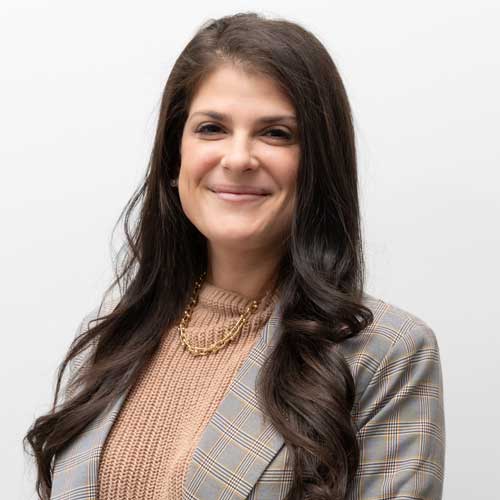Dual diagnosis is utilized at treatment centers when someone is dealing with both a substance use disorder, like drug or alcohol addiction, and a mental health condition, such as depression or anxiety. It’s a challenging situation, making recovery feel like an uphill battle. But here’s the good news: having a supportive family can make a difference.
At Berkshire Mountain’s dual diagnosis treatment centers in MA, we’re committed to helping you find the answers to successful recovery. Find out more here, or contact us for a personalized conversation.
The Power of Family in Dual Diagnosis Recovery
Family members offer a unique kind of strength during addiction and mental health treatment. They provide a safe haven where their loved one feels genuinely seen and heard. This support is like a warm hug on a cold day, bringing comfort and hope.
Talking openly and honestly is also super important. When families can have honest, open conversations about the struggles of living with a dual diagnosis, trust and safety start to be built. The person in recovery starts to find it easier to open up and ask for help. They can face their challenges head-on.
Families that take the time to learn about mental health and addiction become better equipped to support their loved one’s journey.
This might mean learning about different therapies, like cognitive behavioral therapy (CBT) or dialectical behavior therapy (DBT).1 You might attend family therapy sessions or participate in support groups.
Family Involvement: A Key to Successful Treatment
When families get involved with their loved one’s recovery journey, it can make a difference. They can help their loved one stick to the treatment plan, like a friendly reminder to take meds, head to therapy, or attend a support group. This extra support can keep someone focused and motivated, helping them make real strides.
Families are also like detectives, picking up on little clues that might trigger a relapse. By spotting these triggers early on, they can work with the treatment team to devise a game plan to avoid them.
A good support system is essential for anyone going through recovery, but it’s crucial for those dealing with both addiction and a mental health condition. Families can be that rock-solid support, offering love, a listening ear, and a lot of encouragement.
They can also help their loved one find other sources of support, like group therapy or a community of people who get it. Surrounding yourself with understanding people makes it easier to stay on track and handle the ups and downs of recovery.
Supporting Your Loved One: Practical Tips for Families
We’ve covered why family support is so vital in dual diagnosis recovery. Now, let’s explore practical ways to make a real difference in your loved one’s journey. These tips help create a supportive, nurturing environment that fosters healing and lasting recovery.
Learn About Dual Diagnosis at Addiction Treatment Centers
Take some time to learn about what your loved one is going through. It’s OK if mental health and addiction seem confusing at first — there are so many resources out there to help you make sense of it all.
Chat with doctors or therapists, read online, or join an online support group. The more you understand, the more you can help.
Get Involved in Family Therapy at Dual Diagnosis Treatment Centers
If your loved one is in treatment, jump into family therapy with both feet. It’s a safe place to talk openly about the hard stuff, learn new ways to communicate, and even start to heal as a family. Think of it as a team effort towards recovery.
Set Healthy Boundaries
It’s essential to be supportive, but it’s equally important to set healthy boundaries. This means not enabling your loved one’s harmful behaviors. It might mean saying no to lending money, giving them a place to stay if they’re using drugs or alcohol, or covering up for their mistakes.
Setting boundaries can be difficult, but it’s crucial to helping your loved one take responsibility for their recovery and protecting you from being drawn into their struggles.
Prioritize Self-Care
Supporting someone with a dual diagnosis can be emotionally draining. When you care for yourself, you’ll likely find it easier to help your loved one.
Ensure you get enough sleep, eat healthy foods, exercise regularly, and do things you enjoy. If you’re feeling overwhelmed, don’t be afraid to ask for help from friends, family, or a therapist.
Communicate Openly and Honestly
Good communication is vital in any relationship, but it’s essential when dealing with addiction and mental health issues. Create a safe space where your loved one feels comfortable discussing their struggles without fear of judgment.
Listen to them without interrupting or offering unsolicited advice. Let them know you’re there for them, no matter what.
Celebrate Their Successes
You’ve probably heard it said that recovery is a journey, not a destination, and it’s true. It’s important to celebrate even small victories along the way.
If your loved one goes to therapy, stays sober for a day, or makes a healthy choice, acknowledge their effort and let them know you’re proud of them. Positive reinforcement is a big help. It can help someone stay motivated and committed to their recovery.
Be Patient and Understanding
Recovery takes time, and there will likely be setbacks along the way. Don’t get discouraged if your loved one relapses or struggles with their mental health.
Remember, dealing with both addiction and a mental health condition is a journey, not a quick fix. It takes time, and there might be bumps along the way. But keep showing your support, encourage your loved ones to get help when needed, and never stop believing in them.
The Berkshire Mountain Health Approach
At Berkshire Mountain Health dual diagnosis treatment centers in MA, we understand that addiction and mental illness affect not only the individual but the entire family.
We ensure the entire family is included in our treatment approach. Berkshire Mountain Health offers therapy and education to help everyone understand what’s happening and how they can best support their loved ones. We believe recovery becomes much more possible when families are strong and united.
Remember, recovery isn’t a sprint; it’s a marathon. You’ll gain a lot of support at our rehab center, and you must keep at it because it plays a big part in your recovery long-term.
We know that families can face dual diagnosis challenges with proper support and achieve lasting recovery together.
Start Your Path to Recovery with Berkshire Mountain Health
Family support is essential in dual diagnosis treatment centers in MA.[2] By understanding the unique challenges of co-occurring disorders and actively participating in the treatment process, families can make a real difference in their loved ones’ lives.
If your family is struggling with a dual diagnosis, don’t hesitate to seek help. Contact Berkshire Mountain Health to learn more about our family programs and how we can support your family’s journey to recovery.
Sources:
[1] https://www.apa.org/ptsd-guideline/patients-and-families/cognitive-behavioral
[2] https://www.ncbi.nlm.nih.gov/pmc/articles/PMC3262454/

Alexis earned both a B.S. in Psychology and a B.S. in Family and Child Sciences from Florida State University and an M.A. in Marriage and Family Therapy from the University of San Diego. She holds licenses in Marriage and Family Therapy in Florida, Connecticut, and Massachusetts and is also a member of the American Association for Marriage and Family Therapy (AAMFT).
Alexis works with families, couples, children, and groups and also has a sub-specialty in addiction and recovery. She utilizes an integrated, systemic approach to counseling; empowering people to define what is not working for them in their lives and to discover the possibilities for making life work. In doing this, clients are guided towards identifying their strengths, accessing their resources, tapping into their potential for success, and taking action toward achieving their desired goals.
Alexis also has extensive experience in the administration of behavioral health organizations. She has developed, built, and supervised several facilities encompassing all levels of care while leading them through state licensing and The Joint Commission accreditation process.



